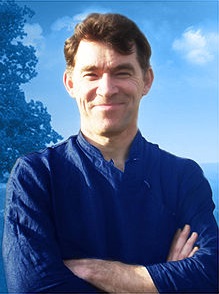Guest writer for Wake Up World
- From time to time, most of us have strange experiences that defy common sense and can’t be explained.
- Some observers are too ready to explain such experiences away as coincidence or self-delusion.
- There is a limit to human beings’ awareness of reality. There must be forces and phenomena that are beyond our awareness.
- We should remain humble, knowing that our awareness is limited and that our lives will always contain elements of the inexplicable.
[pro_ad_display_adzone id=”110028″]
As we go about our lives, most of us operate under the assumption that we have a basic understanding of how the world works. At school, we learned that the world operates according to laws of cause and effect, and that time runs in a straight line from the past through the present to the future. We learned that human beings are biological machines whose consciousness is produced by the brain and will cease to exist when our brains stop functioning. People in previous centuries – or in less rational cultures – may have believed that there are hidden dimensions of reality, and that the world contains forces and phenomena beyond those of which we are normally aware. But we assume that the physical world perceived through our senses is all there is. This is what you could call the ‘common sense’ view of the world that most of us accept as the truth.
However, from time to time we all have experiences that seem to contradict this common-sense view of reality. Here are two of the many that have occurred in my life.
My Father’s Prediction of His Death
My father died 18 months ago, at the age of 79. He had Parkinson’s disease and was quite weak and a little confused, but no one expected him to die at that particular time. A week before his death, he told a friend, “I’ve found out when I’m going to die – it will be a week today, next Thursday.”
His friend was shocked, but as my father didn’t seem seriously ill, he didn’t pay heed to his comments. My dad had only recently woken up after a doze, so his friend assumed he was more confused than normal.
Then my dad continued, “I’ve seen the book where all the dates of people’s death are written down. I can find out the date of your death if you like.”
“Oh no, don’t worry,” said his friend. “I’d rather not know!”
My dad’s friend was certain that he was in a state of delirium. But a couple of days later, my dad’s health took a sudden turn for the worst. He was diagnosed with pneumonia and died on Thursday, just as he had predicted.
My Dream of a Soccer Match
In September 2001, England played Germany at soccer, in a World Cup qualifying match. I had arranged to watch the match at my friend’s house, together with his German girlfriend. The night before the match I had a dream where I was sitting in my friend’s living room watching the match, which was still in progress. The score on the TV screen read ‘England 4, Germany 1.’
The Spotlight of Awareness
There could be simple explanations for both these experiences. A skeptic would probably say that they were a coincidence, and that out of all of the millions of events that occur in our lives, there are bound to be a few extremely improbable events that appear to be miraculous and inexplicable. But I don’t think this is the case. I’m not sure how these experiences can be explained – perhaps they can’t be explained at all. And in a way, that is the important point. Such anomalous experiences illustrate that our knowledge of the world is far from complete and that there are aspects of reality that we cannot understand, and perhaps never will. In my view, some people are all too ready to explain away such experiences, in an effort to maintain their common-sense view of reality.
This is a highly irrational approach. It makes no sense to assume that we have a reliable or complete awareness of reality. Our awareness must be limited, just as the awareness of any living being – such as an insect or sheep – is limited. Consider our awareness of reality compared to an insect’s, for instance. We are aware of many phenomena and concepts that an insect is probably not aware of – for instance, the concepts of time, death, and of our own existence as subjective, self-conscious beings. We probably have a more intense awareness of reality than most other animals. Nevertheless, it is extremely unlikely that our awareness is complete – or even close to complete. To believe otherwise is a form of anthropocentrism, tantamount to seeing human beings as the endpoint of the evolutionary process.
It is probable that, at some point in the future, other living beings will come into existence who have a more intense awareness than us, just as we have more intense awareness than insects or sheep. These hypothetical beings may be more intensely aware of the world around them than human beings. They will probably be aware of forces, energies, or laws that are beyond our present level of awareness.
So in my view, it is almost certain that there is, in Shakespeare’s phrase, “more in heaven and earth that is dreamt of in [our] philosophy.” There are almost certainly forces, energies, and phenomena in the world beyond those which we can presently perceive and understand, or even detect. From time to time, such phenomena may manifest themselves in our lives, causing events that seem improbable and inexplicable.
It is very tempting for us to believe that we have a sound understanding of the world. It gives us a sense of order and control. But, as the great psychologist William James suggested, it would be foolish to “close our account with reality.” We should remain humble, knowing that our awareness is limited and that our lives will always contain elements of the inexplicable.
Originally published at Psychology Today and reproduced with permission.
Recommended articles by Steve Taylor, Ph.D:
- Hypnotic Healing: What is Responsible for the Placebo Effect and Hypnosis?
- Beyond Religion: Will Human Beings Ever Transcend the Need for Religions?
- The Transformational Effects of Bereavement
- Post-Traumatic Creativity: How Psychological Turmoil Can Unlock Our Creative Potential
- The Meaning of Life May Be Life Itself
- Spiritual Depression
- Do Psi Phenomena Exist? A Debate (Part One)
- Do Psi Phenomena Exist? The Debate Continues
- David Ditchfield’s Remarkable Near Death Experience
About the author:
Steve Taylor is a senior lecturer in Psychology at Leeds Beckett University, UK. His latest books in the US are The Calm Center and Back to Sanity: Healing the Madness of the Human Mind. He is also the author of The Fall, Waking From Sleep, and Out Of The Darkness. His books have been published in 19 languages. His research has appeared in The Journal of Transpersonal Psychology, The Journal of Consciousness Studies, The Transpersonal Psychology Review, The International Journal of Transpersonal Studies, as well as the popular media in the UK, including on BBC World TV, The Guardian, and The Independent.
Connect with Steve at StevenMTaylor.com.
[pro_ad_display_adzone id=”110027″]








